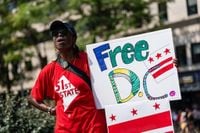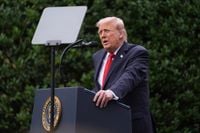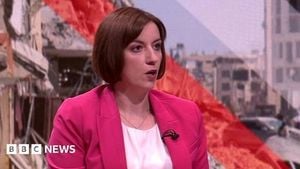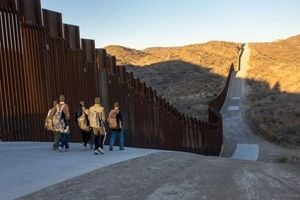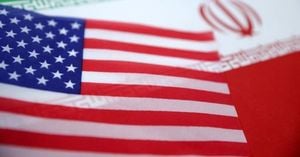On Monday, September 15, 2025, President Donald Trump announced a sweeping new federal law enforcement initiative in Memphis, Tennessee, deploying the National Guard and a host of federal agencies to address what he described as rampant crime in the city. The move, which Trump compared to his recent controversial intervention in Washington, D.C., has sparked a fierce national debate over the scope of presidential power, the role of local authority, and the impact on communities of color.
"This task force will be a replica of our extraordinarily successful efforts here, and you'll see it's a lot of the same thing," Trump declared in the Oval Office, flanked by Tennessee Governor Bill Lee. The president said he would sign a memorandum establishing the "Memphis Safe Task Force," a multi-agency force led by Attorney General Pam Bondi. According to Trump, the group will include the National Guard, FBI, ATF, DEA, ICE, Homeland Security Investigations, US Marshals, and federal prosecutors. "This team will deploy the full powers of federal law enforcement agencies and enforcement generally to restore public safety and get dangerous career criminals off of our streets. We're going to get them off," he added, as reported by The Independent.
Trump said the decision to focus on Memphis was motivated by a conversation with a FedEx board member who lamented the city's condition. The initiative, he claimed, would mirror his "extraordinarily successful" efforts in Washington, D.C., where he previously deployed the National Guard and federal agents under a declared "crime emergency." That emergency, which began on August 11, expired on September 10, but Trump has continued to threaten renewed federal action in the capital and other cities.
Governor Lee, a Republican and close ally of Trump, expressed strong support for the Memphis operation. "When you talk to them, when you talk to the actual population out there who interact with them every day. They say it's a blessing to have them as a part of their life. And then for the National Guard, getting to have this where they get to improve their communities, where their kids are growing up and they're going to church, and this is where their families are. Many of them, sir, have said this is the honor of their lifetime," Lee said, according to The Independent.
Trump’s approach in Memphis stands in contrast to his fraught attempts to intervene in cities with Democratic leadership, such as Chicago. Legal and constitutional obstacles prevent the president from deploying the National Guard to cities without the consent of state governors—unless those troops are federalized. Illinois Governor JB Pritzker has publicly resisted Trump’s threats to send federal forces into Chicago, vowing to fight any such effort. Still, Trump has remained undeterred, citing recent violent crime statistics in Chicago: "When they announced two weeks ago, 11 people killed. There's over a weekend, I think they said 38 people shot, and 11 people dead," he recounted. He added, "We think Chicago is going to be next, and we'll get to St Louis and New Orleans."
Trump’s willingness to use federal resources in Republican-led Tennessee has allowed him to sidestep the kind of political and legal showdowns that have defined his confrontations with Democratic governors and mayors. Yet, his interventions have drawn sharp criticism from local leaders and civil rights advocates, who argue that the president’s actions are less about public safety and more about political theater and control over majority Black and brown cities.
In Washington, D.C., where Trump previously declared a "crime emergency" and federalized local law enforcement, tensions remain high. The president has repeatedly credited his administration with transforming the city. In a late-night post on Truth Social, Trump wrote, "In just a few weeks. The ‘place’ is absolutely booming, with restaurants, stores, and businesses packed and, for the first time in decades, virtually NO CRIME." He continued, "If I allowed this to happen, CRIME would come roaring back. To the people and businesses of Washington, D.C., DON’T WORRY, I AM WITH YOU, AND WON’T ALLOW THIS TO HAPPEN. I’ll call a National Emergency, and Federalize, if necessary!!!"
However, critics have challenged Trump’s characterization of D.C. and the efficacy of his interventions. Markus Batchelor, political director at People For the American Way, told theGrio, "This has never been about public safety, but about advancing Trump’s promised incarceration and deportation campaign on Black and brown Americans. D.C. is just a pilot program for a national effort." Batchelor argued that Trump’s focus on federal takeovers of cities like D.C. and Memphis reflects a broader agenda targeting diverse, Democratic-led urban centers. "Trump is proving what D.C. residents have known the whole time: this takeover of DC isn’t about crime, it’s about control over diverse Democratic cities he doesn’t like," Batchelor said.
Jamal Holtz, president of D.C. Young Democrats, echoed these concerns, telling theGrio, "Over and over again, Trump keeps pushing this false narrative that he’s making D.C. safer. He’s wrong. D.C. is not the dangerous place he describes, and his federal overreach — deploying the Guard and ICE into our neighborhoods — has actually hurt us. Restaurants are suffering, reservations are down, and people don’t want to dine out in a city that feels like a militarized zone. His actions are killing our city and our economy blindly." Holtz added, "As a community, we should all be deeply concerned about what that means for our democracy and needing members of Congress to stand up and protect it at all costs."
Mayor Muriel Bowser, who has at times cooperated with the Trump administration to maintain peace in the capital, has also voiced strong objections to certain federal tactics. She has criticized the presence of masked ICE agents and the climate of fear their operations have created. "I am devastated by people living in fear," Bowser said, as reported by theGrio.
Despite the president’s boasts about plummeting crime in D.C. following the federal intervention, data from the local police department and White House indicate that crime was already on the decline before the emergency was declared. Congress, noting the steps Bowser has taken to ensure continued cooperation between city and federal law enforcement, chose not to extend the emergency, returning control of the police to the district.
Trump’s assertive actions in Memphis and threats of renewed intervention in D.C. and other cities have set the stage for a broader debate in Congress. The House Committee on Oversight and Government Reform is scheduled to review proposals addressing federal authority and local control—a conversation that will likely echo far beyond the nation’s capital or the streets of Memphis.
As the president’s law enforcement strategy rolls out in Memphis, the nation watches closely, weighing the promise of safer streets against the risks of federal overreach and the erosion of local autonomy. For many, the outcome could shape the balance of power between Washington and America’s cities for years to come.
